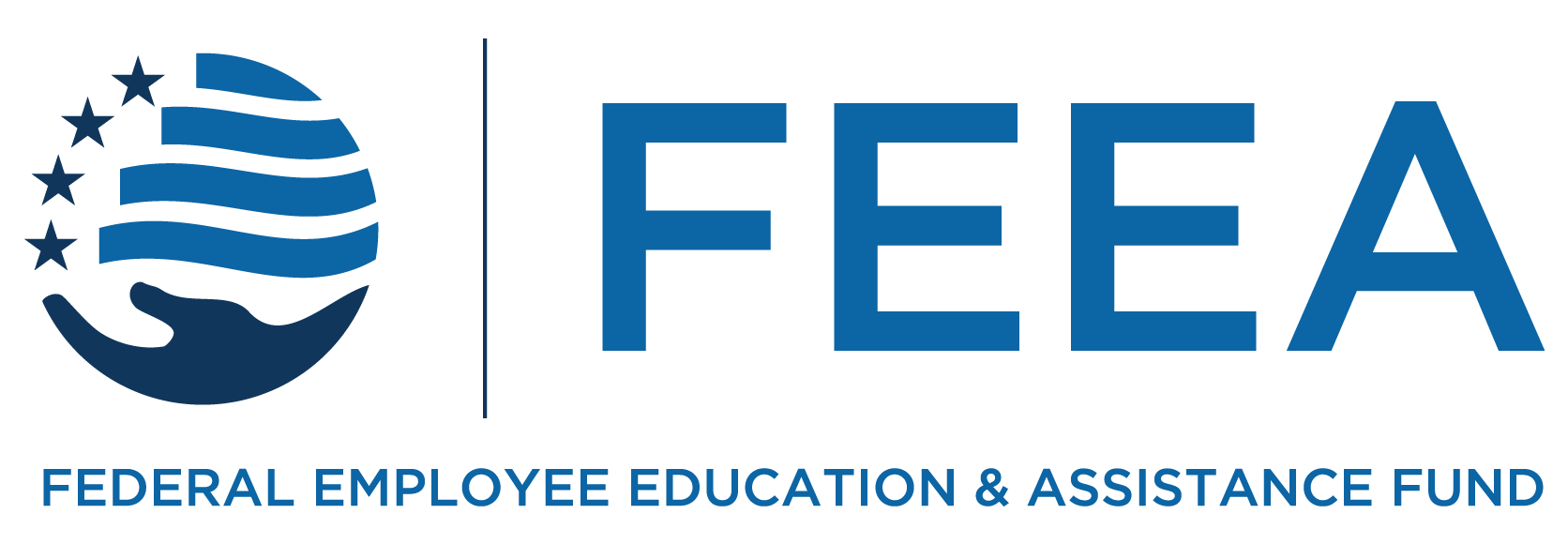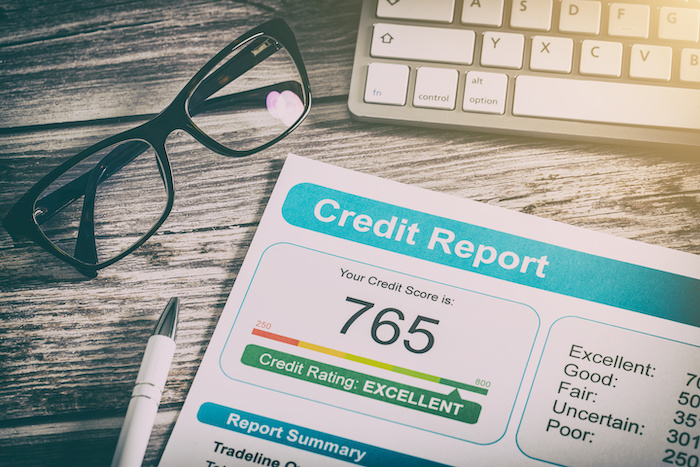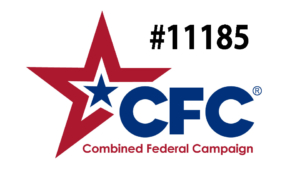8 Things to Know About Your Credit Reports and Scores
by Joyce Warner
One of the things we know at FEEA from our work with federal employees is that for many, credit scores and how different financial actions (or inactions) affect them can be confusing. I recently spoke with Rod Griffin, Director of Consumer Education and Advocacy at Experian, to gather more information for our #FedLifeHacks followers on the topic.
Joyce: Rod, thanks so much for chatting with me on this important topic. First things first, can you explain the difference between a credit score and a credit report?
Rod: A credit score is a tool lenders use to analyze the information from a credit report. The number represents the risk that a person will not be able to repay a debt as agreed. Credit scores are based on the information in your credit report. When a lender requests your credit score, it is calculated using the information as it appears in your credit report at that moment. A good credit score is essential for your financial well-being. Good credit scores represent strong credit histories. A strong credit history will qualify you for lower interest rates and fees when applying for credit. A good credit report, reflected in good credit scores, will help you get the credit you need and save you money.
There are hundreds of different credit scores, but you only have three credit reports: Experian, Transunion, and Equifax. There are different scores for different types of lenders, for example credit unions and national banks, and different types of lending, such as credit cards, car loans, or mortgages. Credit scores all look at the same information but do so differently to help different lenders identify risk for the particular type of lending they do.
The elements from your credit report that shape your credit scores are called score factors or risk factors. When a credit score is calculated, a list of risk factors is generated that describe what from that person’s credit report most affected the score. While credit score numbers can differ significantly, risk factors tend to be very consistent. Focus on the risk factors to improve your credit history and all of your credit scores will get better.
The first step in improving your credit scores is to know what is in your credit report. You are entitled to a free copy of your credit report from all three bureaus once a year. You can access this by visiting www.annualcreditreport.com.
Joyce: What should someone do if they see what they believe is an error on their credit report?
Rod: Getting a copy of your credit report at least once a year can help you identify fraudulent activity as well as any potentially incorrect information on your credit report. If you believe there is inaccurate information on your Experian credit report, you can dispute it by visiting our Online Dispute Center at www.experian.com/disputes. You can also submit a dispute via phone by calling the number displayed on your credit report to speak with an agent. Lastly, you can dispute incorrect information by mail by writing to Experian, P.O. Box 4500, Allen, TX 75013. (NB: Check out this link for information about how to contact the other two reporting agencies regarding errors.)
There is no cost to dispute information you believe is inaccurate, and doing so will not affect your credit scores in any way. If you don’t already have a current copy of your credit report, Experian will provide a free copy when you start the process. If you do already have a copy, you can simply provide the report number and pull it up on the screen. The process is secure, fast and simple.
Joyce: With so many different credit score models, can you tell us about the different ones, who creates them, what the ranges are, and how they are used?
Rod: As I mentioned, there are hundreds of different credit scores. All credit scores have the same basic goal: helping lenders (and other potential creditors, such as landlords and utility companies) understand the risk of extending credit or doing business with you. An extremely low credit score, which suggests a history of poor debt management, may cause creditors to decide against lending you money, leasing you an apartment or issuing you phone or cable equipment. More often, lenders use credit scores, along with other information such as employment history and proof of income, to decide how much they are willing to lend you and at what interest rate. Which credit score model is used depends on what type of credit you are applying for. For example, auto lenders and mortgage lenders will likely use a different score model than credit card or personal loan lenders. Some of the most common models used by lenders are FICO 8 and 9 and VantageScore 3 and 4.
The most common scores used today usually have a range of about 350 to 850. However, some scores, such as those used for automotive lending can have scores that go to 900 or 920. If you do not receive the best terms when you apply for credit or your application is declined, the lender must provide an “adverse action notice” that includes a score they used, an explanation of the score, its range, and the risk factors that most affected it.
Joyce: What’s the difference between prime and subprime and how would that affect a borrower?
Rod: A borrower with a score of greater than 700 is generally considered to have a prime credit score. With a prime credit score, you may be able to access better offers, including lower interest rates and no fees on credit cards.
Subprime credit scores are generally scores lower than 680, depending on the score and lender. In some cases “subprime” begins with scores as low as 620. Consumers with subprime credit scores are usually required to pay larger deposits and may be faced with higher interest rates. In fact, research from Credit Builder’s Alliance shows that consumers with subprime scores may pay up to $200,000 more over the course of their life with higher interest rates and fees.
Joyce: I know lenders will usually look at a credit score before offering a loan of any kind, but what other types of organizations or individuals use credit scores?
Rod: Your credit history can impact more than your ability to secure a loan, credit card, or a mortgage. When you’re applying for a rental property or a lease, your credit report will be used as part of the decisioning process, along with credit scores specifically developed for that purpose. Utility companies also may use your credit report and credit scores to determine the deposits that may be required. Likewise, cellular telephone companies use credit reports and scores developed for them to establish service with them, and qualify you to purchase a phone using a payment plan. Insurance companies use credit reports and insurance scores to determine the risk that a person will default on premiums and to assess the likelihood a person will make claims. Similarly, your credit report may be pulled by a prospective employer when you’re applying for a job, although it’s important to stress employers never receive credit scores.
Joyce: If someone has a lower score, what types of things can they do to improve it? How long does it take to improve a low score?
Rod: Improving your credit scores takes time, but the sooner you address the issues that might be dragging them down, the faster your credit scores will go up. The most important thing to do is make your payments on time, every time. Late payments are the most important factor in credit scores. Here are three other ways to improve credit scores:
- Reduce your card balances – Your utilization rate is an important factor. It is calculated by adding all your credit card balances at any given time and dividing that amount by your total credit limit. People with the best credit scores have very low credit utilization rates, typically less than 10 percent. A low credit utilization ratio tells lenders you haven’t maxed out your credit cards and likely know how to manage credit well.
- Catch up on late payments – When lenders review your credit report and request a credit score for you, they’re very interested in how reliably you pay your bills. That’s because past payment performance is usually considered a good predictor of future performance. You can positively influence this credit scoring factor by paying all your bills on time as agreed every month. Paying late or settling an account for less than what you originally agreed to pay will negatively affect credit scores.
- Consider third-party positive financial reporting services that allow you to add reporting on things likely timely rent, utility, and phone payments. You can learn more about them in this Bankrate article.
Joyce: We know many people are concerned about identify theft. What can you tell us about the options to protect your credit report and the differences between a security alert, fraud alert, and credit freeze?
Rod: Both credit monitoring and credit freezes are tools designed to protect consumers from fraudsters opening up fraudulent accounts. Credit monitoring will alert a consumer when their credit report is requested, when new lines of credit are added to their credit report, and it will also notify them of any changes in credit scores. Monitoring also would alert the consumer to changes in the identifying information reported to Experian, such as an address change resulting from an account takeover or data breach. Monitoring services may also alert you to activity on the dark web. The goal is to help you react quickly to signs of fraud and identity theft.
If you believe you may be a victim of fraud, you can request an initial security alert be added to your credit report. The alert tells lenders that you may be a victim of identity theft and warns them to take additional precautions before granting credit in your name. You can provide a telephone number for lenders to call you before opening an account. An initial security alert remains on your report for 12 months.
An extended fraud victim statement remains for seven years. It states you are a victim of identity theft and asks that lenders call you before granting credit in your name. You can provide two telephone numbers to include in the statement. Adding the statement is free, but requires you first file a police report or other valid identity theft report.
Both initial security alerts and extended fraud victim statements are free. Experian shares them with the other national credit reporting companies. Federal law requires lenders respond to them.
A credit freeze blocks access to your report when someone applies for credit using your identifying information. When you request a credit freeze you will be issued a PIN. Before applying for credit or other services, you must request the freeze be lifted by providing the PIN. You must place the freeze separately at each national credit reporting company.
If a consumer has a credit freeze in place, a lender will not be able to pull a consumer’s credit report and the consumer will not be able to apply for credit without first unfreezing their credit report. It’s important to note that freezing a credit report will not protect a consumer from account takeover fraud. For example, if someone’s credit card number was stolen, a credit freeze would not protect a consumer in this situation. A credit freeze is only triggered when someone uses your identity to apply for new credit. There are also a number of exceptions to freezes, so they do not block everyone from accessing your report.
Because of this, having a credit freeze and credit monitoring in place at the same time may help a consumer protect themselves and become aware of potential fraudulent activity.
It is important to note, however, that a credit freeze does not prevent identity theft. It helps protect a person from credit fraud resulting from identity theft. There are many other ways stolen identities may be used that wouldn’t be prevented by a credit freeze. Aside from credit reports, Experian’s monitoring service scans for activity on the dark web, social media, and other places where identities may be used and compromised.
Joyce: Have there been any changes over the last few years that our readers should know about related to credit reports or credit scores?
Rod: There have been a number of changes in recent years to both credit reports and credit scores. Here are a few of the most significant:
- All public records except bankruptcy have been removed from credit reports. Previously, things like paid and unpaid tax liens and civil judgments could affect credit scores. That is no longer the case.
- Medical collection accounts are now delayed for 180 days before appearing in a credit report. Doing so helps ensure that the collection is valid and not the result of things like billing errors or insurance disputes.
- Paid collections may no longer affect credit scores. The newest credit scoring models now exclude paid collections from the score calculation, so paying off your old collections could result in an automatic increase in credit scores.
- You can now have your positive utility and telecom payments reported to Experian to boost your credit scores. In the past, negative information such as collection accounts for cell phone bills would hurt your scores, but you didn’t get credit for paying on time. Experian Boost now enables you to add those on-time payments to help show you are a good credit risk. It’s a free service available at experian.com/boost.
Would you like to reprint this piece in your agency human resource, federal employee association, or union local newsletter? You can do so at no cost by contacting admin@feea.org with your request.
The information provided in this piece is for your convenience and informational purposes only and not to be construed as professional advice. FEEA and its coauthors and sponsors are not liable for any losses or damages related to actions or failure to act with regard to the content in this piece.




